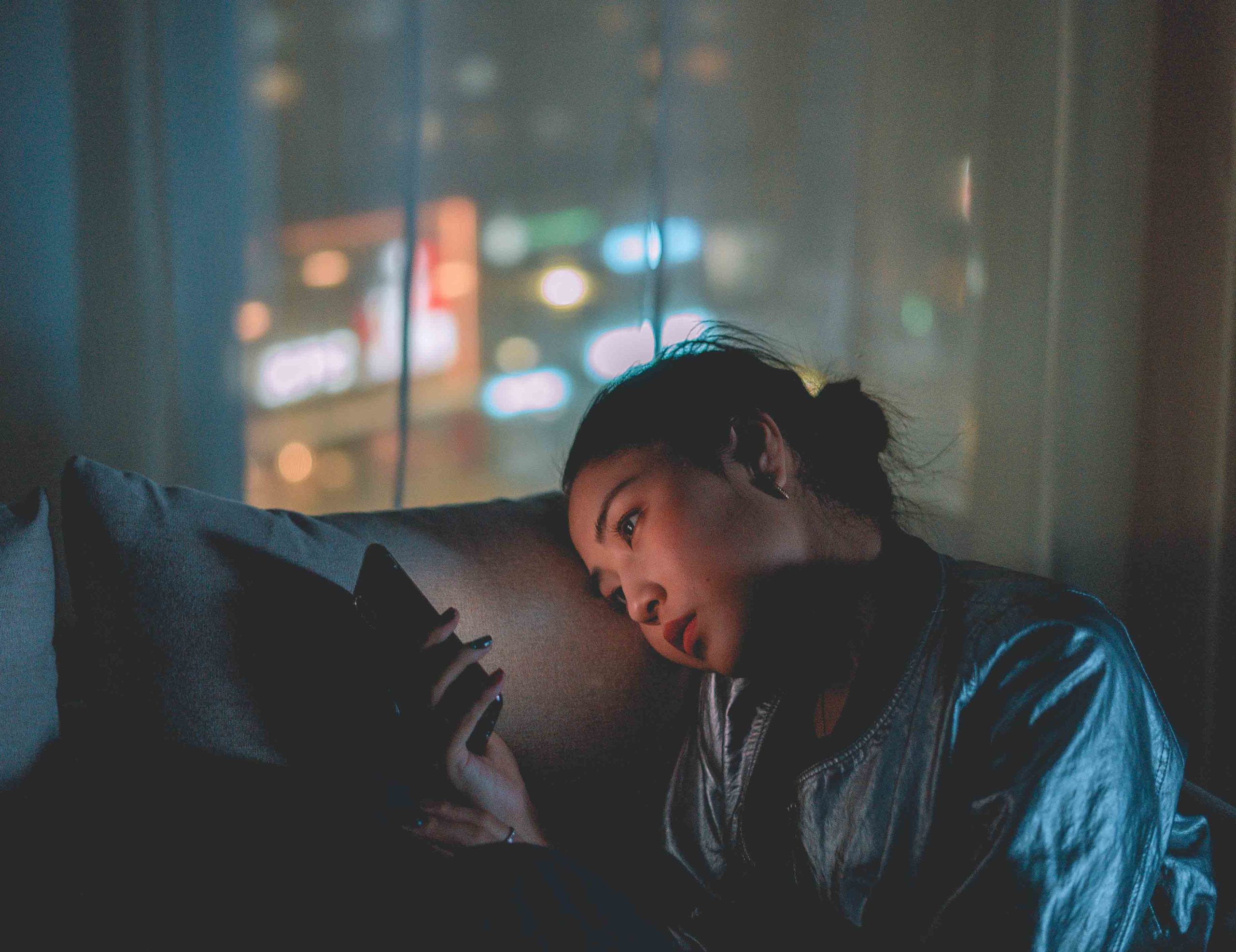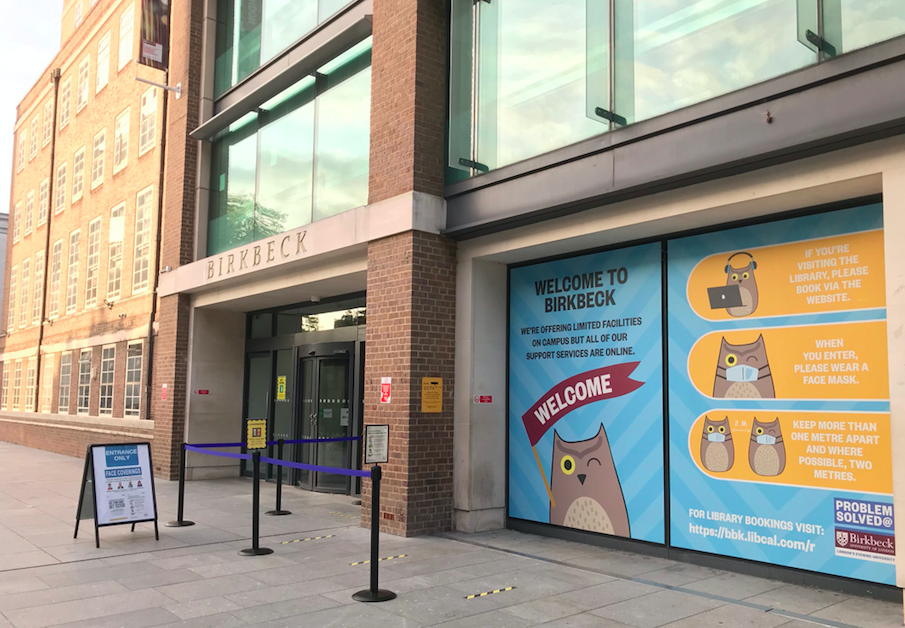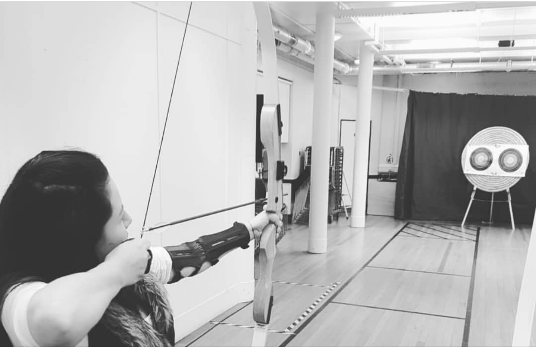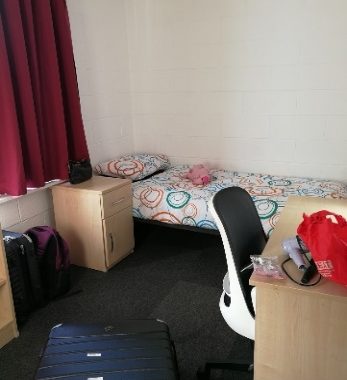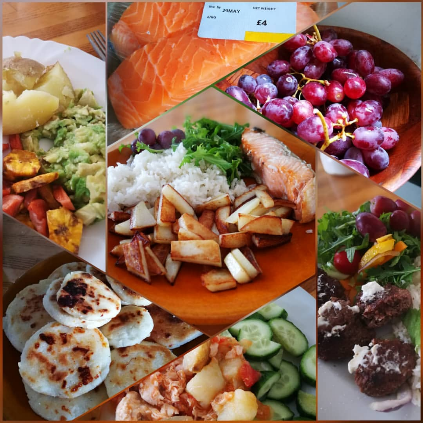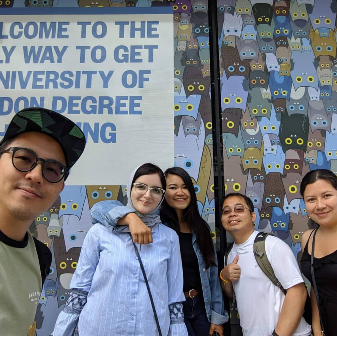On 4 November, Sikh people around the world will observe the Day of Liberation: Bandhi Chhor Divas. With the celebrations often coinciding with Diwali, the Festival of Light, celebrated by Hindus and more widely recognised around the world, the annual Sikh festival holds a special place for the community, with distinct personal observations on its significance. Here, Bayparvah Kaur Gehdu, Birkbeck PhD student, shares some of these.
Reflections on Bandhi Chhor Divas, the ‘Day of Liberation’
“Bandhi Chor Divas is not about light for Sikhs, it’s about self-reflection and seva (service), a reminder of our commitment to stand for social justice as forged by our Guru Sahibaan.”- Jasmeet Kaur (she/her), Secondary Education professional, writer, and disabilities advocate.
“[It] is a reminder, to me, of our responsibility, as Sikhs, to fight oppressive systems- ALL systems of oppression in a spirit of solidarity, but one that is understood and driven by our history, our faith, our gurbani (speech), and our radical/revolutionary love.”- Sharanjit Kaur (she/her), PhD (cand.) UBC, History, Sessional Instructor of History, UFV and co-curator Sikh Heritage Museum, National Historic Site Gur Sikh Temple, Abbotsford, B.C.
“For me, Bandhi Chhor Divas is a reminder of our continued struggles and how they are interconnected with critical and compassionate approaches to social change. Together, we can stand against those stripping others of their humanity and we can walk side by side, or open space for those who have had their humanity taken from them. Together, we can take steps towards liberation.”- Shuranjeet Singh (he/him), PhD candidate and mental health advocate.
“Bandhi Chorr Divas is celebrated on the same day as Diwali, the Festival of Lights, and is sometimes also interpreted as a day commemorating the existential journey from darkness to light. However, Bandhi Chorr goes way beyond this literal symbolism, and for me, it symbolises the fight for justice. It symbolises the need to take a stance against injustices and having the moral and spiritual strength to defy oppressors. Guru Hargobind Sahib Ji waived the opportunity to his own freedom while the 52 rajahs imprisoned with him were not granted theirs. This incident is a graphic depiction of being defiant against oppressors. Currently, the farmers of Punjab are battling the same injustices, and Bandhi Chorr Divas takes on renewed significance about the fight for justice.” – Dr Gursharan Kalsi, Research Manager, King’s College London.
“Bandhi Chorr Divas happens to fall on the same day as Diwali. Every year when Diwali comes around people exchange greetings and wish each other well there is less mention of the festival Sikhs celebrate, known as ‘Bandhi Chhor Divas’. I remember at a very young age I learned the story of what the significance was of the day. The story of Bandhi Chorr Divas, to me, represents freedom over oppression. After being released, Guru Ji went to Amritsar to celebrate Diwali and that, to me, represents what Sikhi is primarily about: Unity.” – Amandeep Kaur Bhurjee (she/her), student and mental health advocate.
“My interpretation of Bandhi Chhor Divas falls into two areas. Firstly I think it was about the guruji giving the 52 rajas salvation from literally being released from imprisonment at that actual time in history. But secondly it might also be perceived that by being led by guruji, we seek freedom from our own metaphorical imprisonment from being within darkness and not knowing, to be enlightened from the knowledge, learned and gained.”- Kulvir Singh (he/him), Learning Design Officer, Warwick University.
“Bandhi Chhor Divas means the day of liberation. Guru Hargobind Sahib liberated 52 soldiers from prison to freedom. For me, Bandhi Chhor Divas signifies that Guru Sahib is there to liberate us from our internal and external fears and vices. It also teaches us to accept hukam and place our trust in Guru Sahib’s hand. Guru Sahib had an option to just leave the prison alone, yet he decided to free the other kings, teaching us an important lesson about selfless sewa.”- Sarbjot Kaur (she/her), audit and risk management professional and disabilities advocate.
“This is what Bandhi Chhor means to me: The key message is the focus on the ‘inner light’ and not the external representation we are used to seeing. This is something that’s pure and eternal. The guru dispels this darkness of ignorance and ego with this light of understanding. As a result we realise ourselves, everything around us and the oneness of the creator god- Waheguru. – Taree Singh Bhogal (he/him), IT support engineer.
“From the outside, we see this part of Sikh history as our Guru Ji made prisoner to the Mughal empire, later being released. However, this is not the case. In reality our Guru Ji is the one who frees us and releases us from bondage. So, for this reason any of the Sikh Gurus could never be imprisoned. The display we see is Guru Hargobind Sahib Ji had a reason to enter that prison of their own free will. Guru Ji went there to help those who needed saving. This is a lesson for Sikhs and those who believe in the Sikh Gurus, that when we are in trouble and need help our Guru Ji is always there to stand with us and help free us from the many forms of prisons we are trapped in.”- Vickramjit Singh, Business Intelligence Developer.
What is Sikhi (Sikhism)?

An image depicting the true essence of Sikhi- Oneness, with the number 1 written in Gurmukhi script and One written in English script underneath.
Sikhi (the authentic term for Sikhism), is the ‘revealed path of Enlightenment’ as taught by the Gurus from 1469 to 17081. The Sikh Gurus were ‘revered as spiritual teachers, as warriors, poets, emancipators, and as sovereign rulers2. Sikhi is fundamentally based on the premise of Oneness; humans are all equal as there is ‘no religion and God has no chosen people’1 (ref Top Ten Questions about Sikhi 2021; Singh, S. (2021). SatGuru Bandi Chhorr Hai — National Sikh Youth Federation).
Background to Bandhi Chhor Divas/Day of Liberation
According to tradition, the long imprisoned Guru Hargobind Sahib Ji, the sixth Sikh Guru, was released from Gwalior, India, taking with him 52 Rajas, also political prisoners.
The Emperor Jahangir said that those who clung to the Guru’s coat would be able to go free. This was meant to limit the number of prisoners who could be released. However, Guru Hargobind (Guruji/Guru Ji) had a coat made with 52 tassels attached to it so that all of the princes could leave prison with him. This act of defiance demonstrated the concept of ‘Oneness’: how we are all equal and interconnected with our struggles, pain, and oppression but also in our love and joy.
On Bandhi Chhor Divas, Sikhs celebrate the freedom and human rights associated with this history. While the day often falls on the same day as Diwali, they are two distinct festivals with the Day of Liberation falling days before, on occasion.



